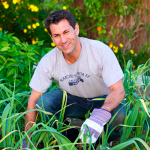Self Confidence in Children
 Confidence is the capacity to believe in oneself and not be in a place of self-doubt or worry. How is confidence established? Self-confidence is earned, not given. A belief in oneself must be attained first hand by the person and absorbed into one’s mind as internal strength. The development of confidence comes from experiencing successful experiences and the level of confidence is associated with the amount of struggle and energy went into the process. In other words, the harder the struggle to succeed, the stronger the sense of confidence established.
Confidence is the capacity to believe in oneself and not be in a place of self-doubt or worry. How is confidence established? Self-confidence is earned, not given. A belief in oneself must be attained first hand by the person and absorbed into one’s mind as internal strength. The development of confidence comes from experiencing successful experiences and the level of confidence is associated with the amount of struggle and energy went into the process. In other words, the harder the struggle to succeed, the stronger the sense of confidence established.
In children, parents are essential in helping them develop confidence, especially between the ages of 7 and 10, and again in adolescence as these are times when self-doubt is at a high level. Pointing out your child’s successes and encouraging them to feel the benefits of that reward is a wonderful gift a parent can offer to their child.
Self-confident children, teens, and adults become leaders. These individuals radiate in a positive manner making others around them feel hopeful. Children who are confident, not to be confused with false bragging, give hope to their peers especially during difficult times. The impact of a positive and confident peer who also demonstrates compassion and empathy is perhaps the single best medicine for a depressed child. The peer represents an equal mentor, one who is on their same level of growth and development.
Make some time in your family to review everyone’s strengths. Don’t make it competitive, make it rewarding. Talk to your kids one by one letting them know you notice their strengths. Encourage them to ” pat themselves on their own backs”. As parents, we tend to focus on what we want to improve which is our job. But, it is also a parental job to notice and nurture success in our children as well. That parental modeling goes a long way in helping your child develop an internal sense of strength we call confidence.
Characteristics of a Confident Child:
- a sense of self-pride
- the capacity to manage losing
- an interest and curiosity in their world
- a desire for others to feel happy and confident as well
- a general sense that all will be okay even during stressful times
______________________________________________________________
Dr. Keith Kanner is a Licensed and Board Certified Clinical Child, Adolescent, and Adult Psychologist and Psychoanalyst. In addition to a full-time private practice in Rancho Santa Fe, California, he is an Assistant Clinical Professor of Psychiatry in the School of Medicine at the University of California San Diego where he teaches both human development and also trains medical students how to better understand and relate to their patients. He also serves as the Director of Clinical Counseling for La Jolla Country Day School in La Jolla, California, and is a Clinical Professor at The San Diego Psychoanalytic Society and Institute. Dr. Kanner also sits on the National Board of Directors for Kids Korps USA, which is the largest organization in the country that teaches children and adolescents the importance of volunteering to help the community at large. As a father of three children, he is also a dedicated baseball, football, and soccer coach.










You must be logged in to post a comment Login